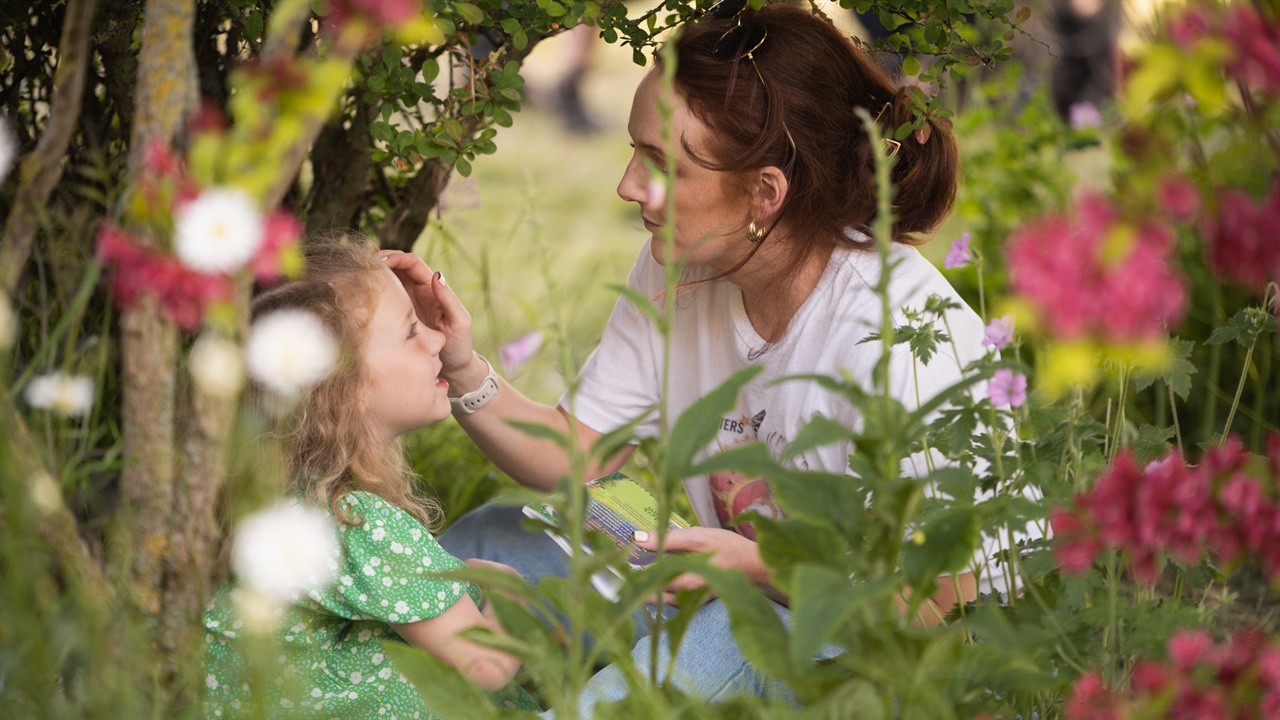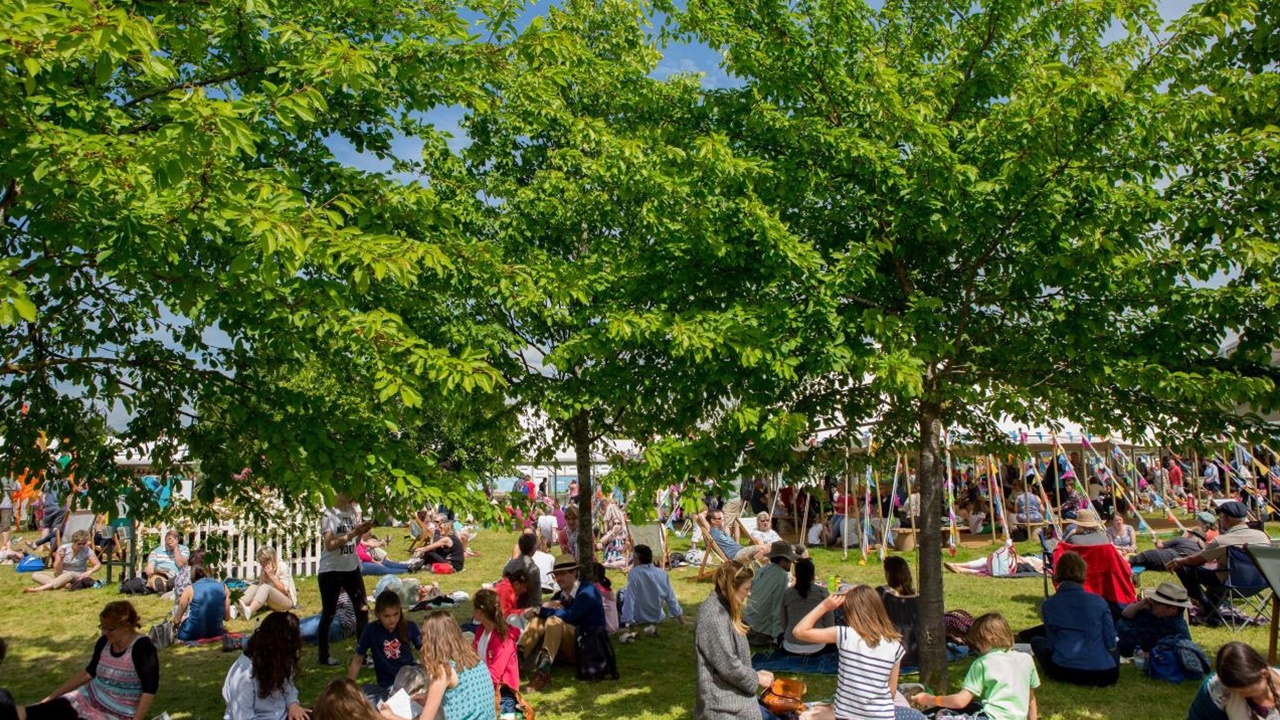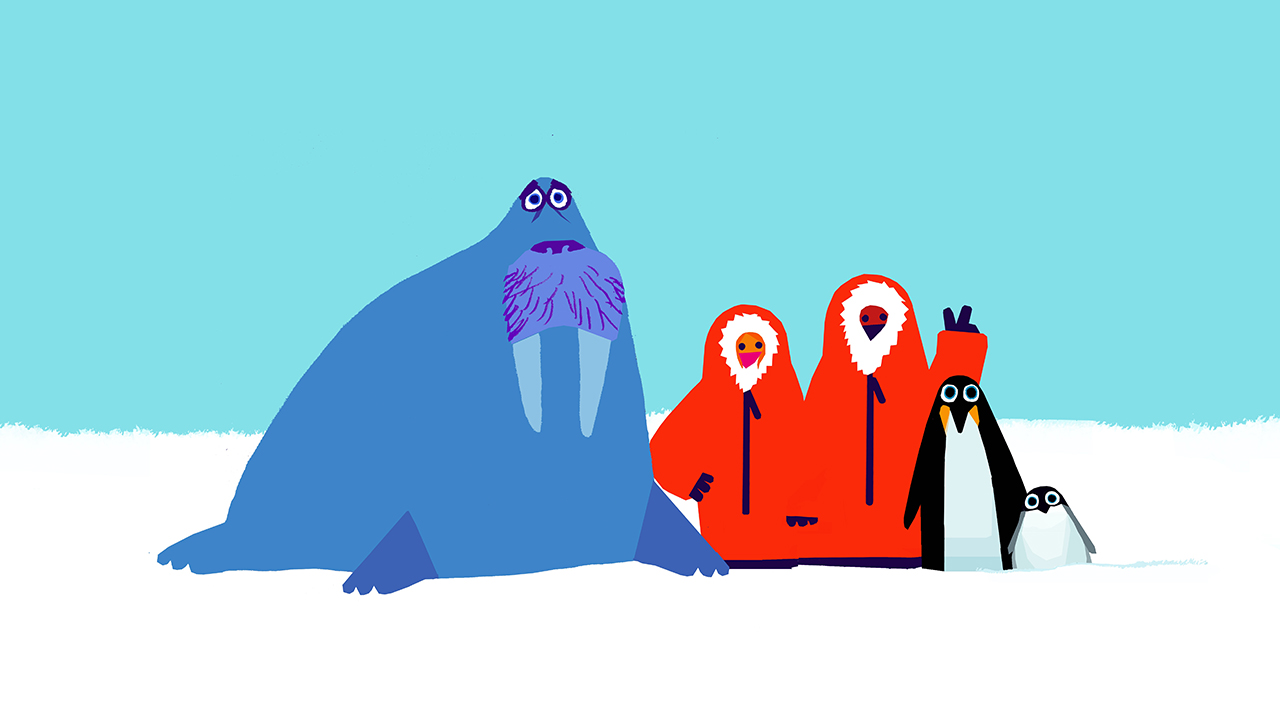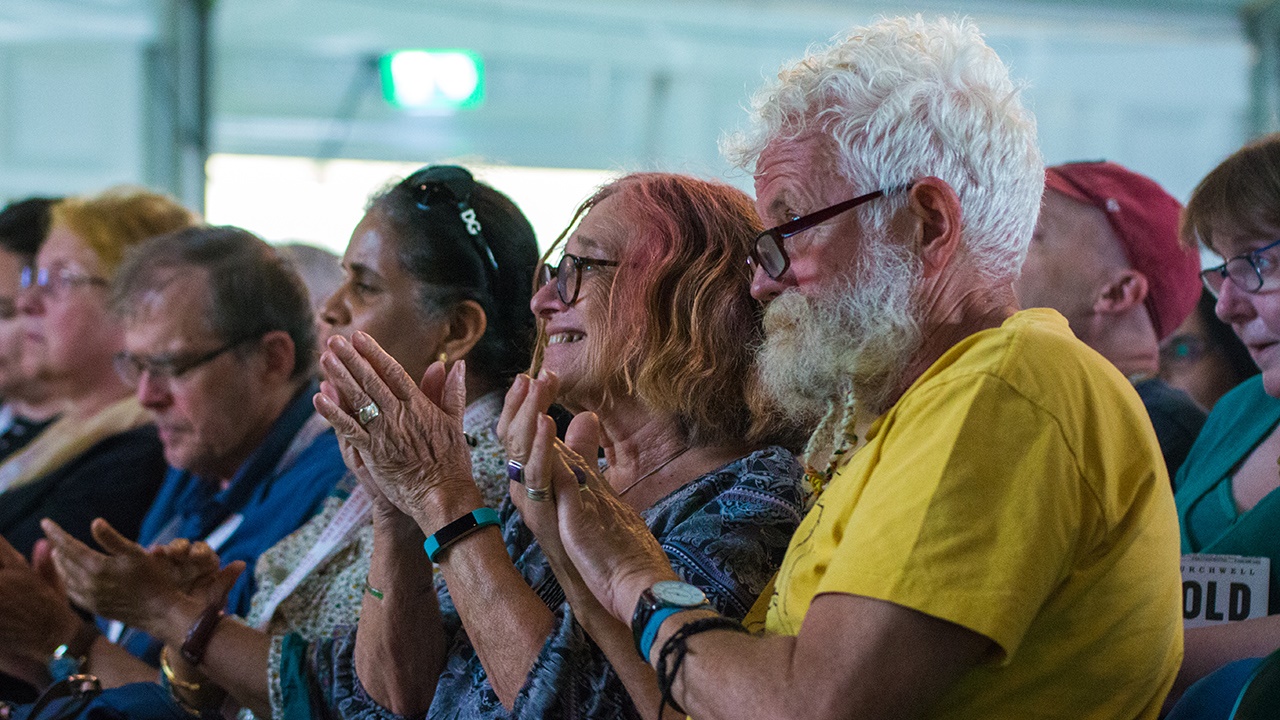Hay Festival Green
Sustainability is core to Hay Festival, both on stage and in the development of the Festival as an organisation.


Discussion and debate
Our programme includes writers, thinkers, scientists, academics and farmers – people writing about and taking action on the climate emergency. Hay Festival Green offers a sustainability-focused series of events exploring our connection with nature. We interrogate current issues, new developments and technical advances throughout the Festival. Explore our previous events on Hay Festival Anytime.
Mobilising for our planet
Ideas and stories are limitless: our planet’s resources are not. The combined climate, biodiversity and nature emergencies are an existential threat to us all. So we all have a responsibility to help find solutions.
Hay Festival Green is mobilising, harnessing and inspiring our whole community of writers, thinkers, readers, scientists, academics – everyone – to make the significant lifestyle changes that are urgently needed.
Through all our programming we hope to inspire our audience to drive change, like Garry Charnock who was inspired to create the campaign for Ashton Hayes to become Britain’s first Carbon Neutral Village. If you’ve been inspired to make change, we’d love to hear your stories – send them to us at: mobilising@hayfestival.org.
Environment
We’ve developed a programme of managing and mitigating the environmental impact of creating a live festival, focusing on energy, waste, transport, procurement and venues.
Energy
All our mains electricity is provided by Good Energy and is from renewable sources. All site lighting including festoons, sign lights, floods and decorative garden lighting is low-energy LED.
Waste
At Hay Festival 2024 we became the first business to be certified as compliant with new 2024 Welsh Workplace Recycling Regulations. We recycled or composted 85% of the waste produced on site, with the remaining 15% being sent for incineration to generate energy. Back in 2017, 1,000 wheelie bins were filled with plastic and cans during the Festival. By 2023 we had reduced this to 250 wheelie bins of plastic and 40 wheelie bins of cans – a 71% reduction, and we sustained this in 2024.
We achieved this by introducing a reuse system for coffee cups and bar glasses, to minimise single-use waste. We also encouraged visitors to bring their own water bottles, to fill and refill for free at water points across the site. This has resulted in an astonishing 99% reduction in coffee cup waste – from 2017, when we produced 350 wheelie bins of single-use coffee cups, to 2024 when we didn’t fill a single wheelie bin – 27,912 reusable cups were sent for washing and reuse.
All Festival traders now use sustainable, recycled, compostable and biodegradable packaging and are cutting back on or doing away with plastic packaging. In 2023, we identified that plastic milk containers were a large part of our recycling stream (2,650 over the 11 days) so in 2024 we ran a trial of reusable milk churns from Wholy Cow with one of our coffee traders. The trial was a success, with 665 litres of milk being delivered, resulting in avoiding 333 single-use milk bottles.
At the end of each day in 2024, any spare food was sent to Primrose Community Centre and Shrewsbury Food Hub, and we worked with Pedicargo in Hereford to compost all our food waste and compostable serveware: 8.5 tonnes in total. We found local reuse and recycling destinations for a wide range of materials.
Every year we run our Caterers and Exhibitors Sustainability Awards, celebrating, promoting and sharing the best ideas and practices amongst our caterers and exhibitors. In 2024, the Gold Award for exhibitors went to Superfungi and the Gold Award for caterers went to Copper Coffee.
Transport
We reduce the impact of travel by providing frequent public buses between Hay and the nearest train station in Hereford and the bus station in Worcester – in 2024 these carried 2,978 passengers, a 13% increase on 2023 figures. In order to increase usage of the bus service, this year children (up to 15 years, accompanied by an adult) will travel FREE.
If you’re coming by car, please consider offsetting the CO2 emissions with our partners Ecolibrium (ecolibrium.earth/travel-carbon-calculator), a collaboration between festivals and festival-goers.
Social impact
As part of Hay Festival Green we also consider the Festival’s social and financial impact.
Initiatives include: working with partners at the Woodland Trust and the National Trust to plant 30 acres of woodland; partnering with the Natural Environment Research Council to find new ways of communicating science; providing free tickets for students in tertiary education; supporting the local community through free loan of the Festival’s thermal imaging camera for building insulation assessments; and providing funding to maintain opening hours for Hay-on-Wye’s library.
Hay Festival Foundation is committed to sustainability (meeting the needs of the present without compromising the ability of future generations to meet their own needs) as a guiding principle within our work. We continue to develop ideas and practice in sustainability. We believe that debate increases awareness, and good practice increases change in local communities, in business and in society. Contact andy@hayfestival.org for more information.
Digital events
The 2020 pandemic caused us to cancel our live events and move the Festival online. From an environmental perspective, this vastly reduces the negative impacts from travel and infrastructure however it does not entirely remove the CO2 impacts and in fact, the largest part of the digital carbon footprint is due to video streaming - crucial for events such as ours. For more information on Digital Footprinting, please go to our Hay on Earth Toolkit page.
Thank you
Thank you for helping us make Hay Festival more sustainable.
Hay Festival continues to develop ideas and practice in sustainability and believes that debate increases awareness, and good practice increases change in local communities, in business and in society. Hay Festival is actively looking for organisations, public bodies and individuals who can help to achieve these objectives. Please contact andy@hayfestival.org.


.jpg?cmsotimagehandler=/Uploads/Crops/4aaf5dd4-6c88-4921-b3ce-c9297c8a741b/04460e89-f075-476c-bf21-94598fee2fc8.jpg)